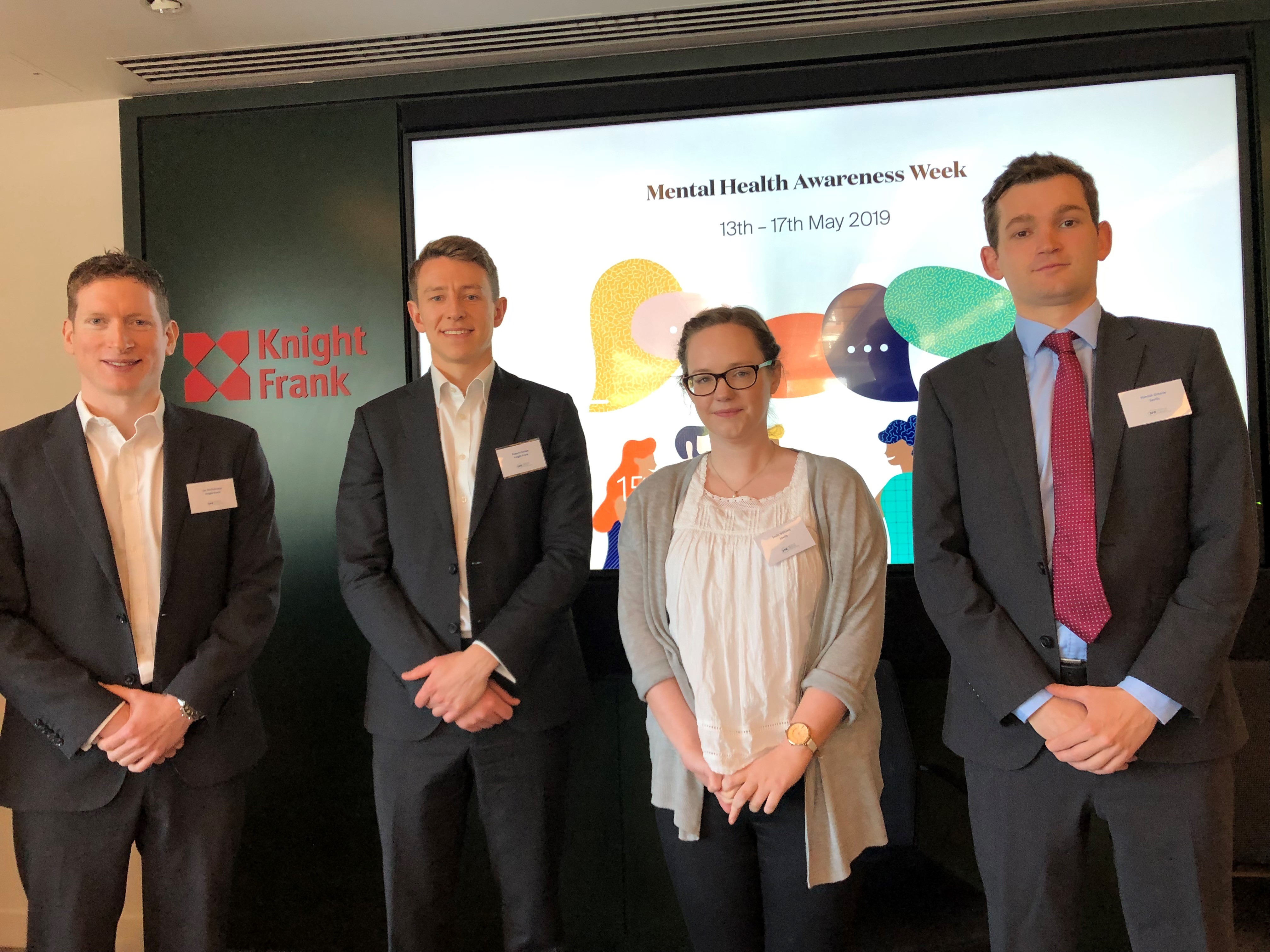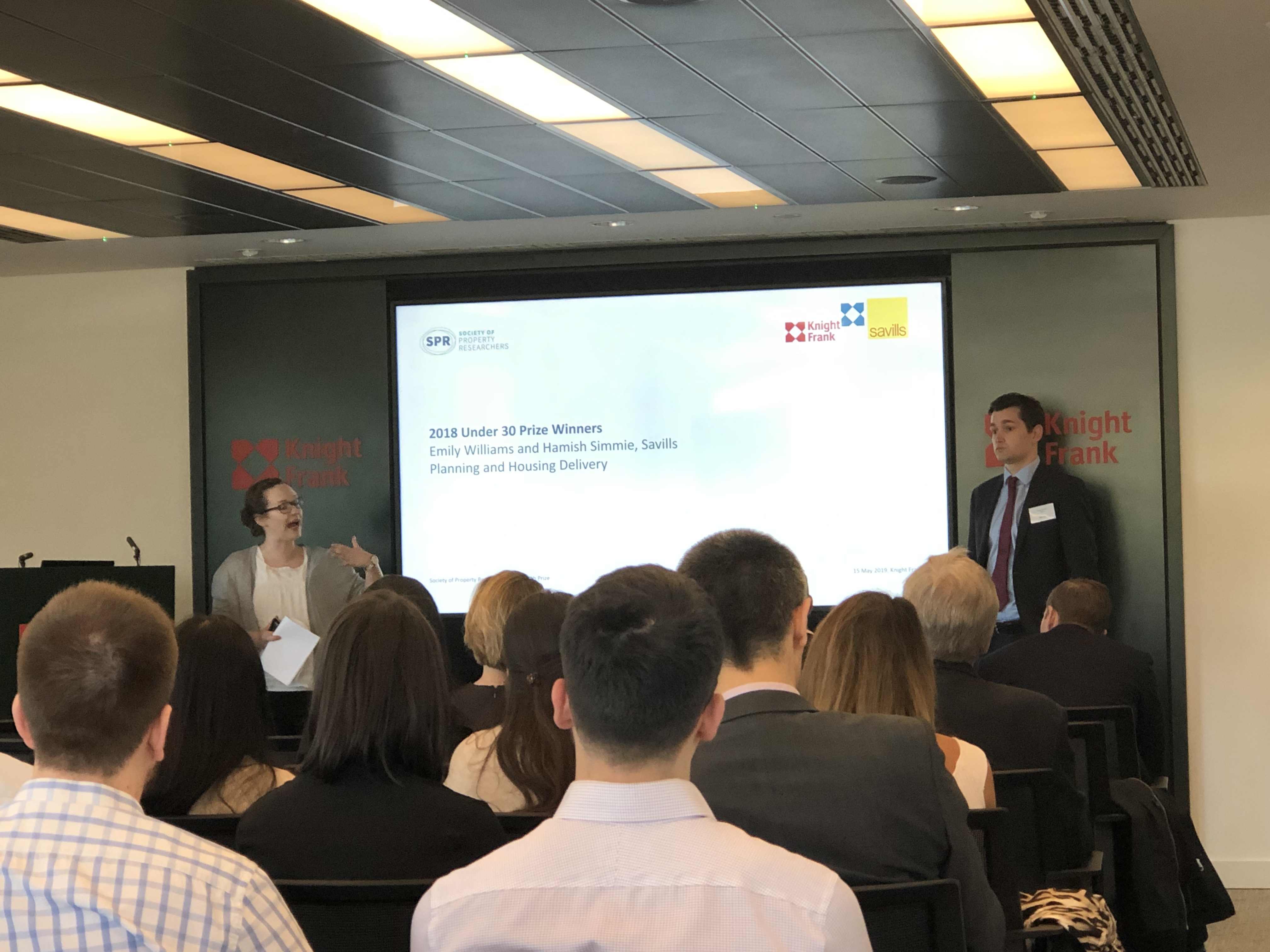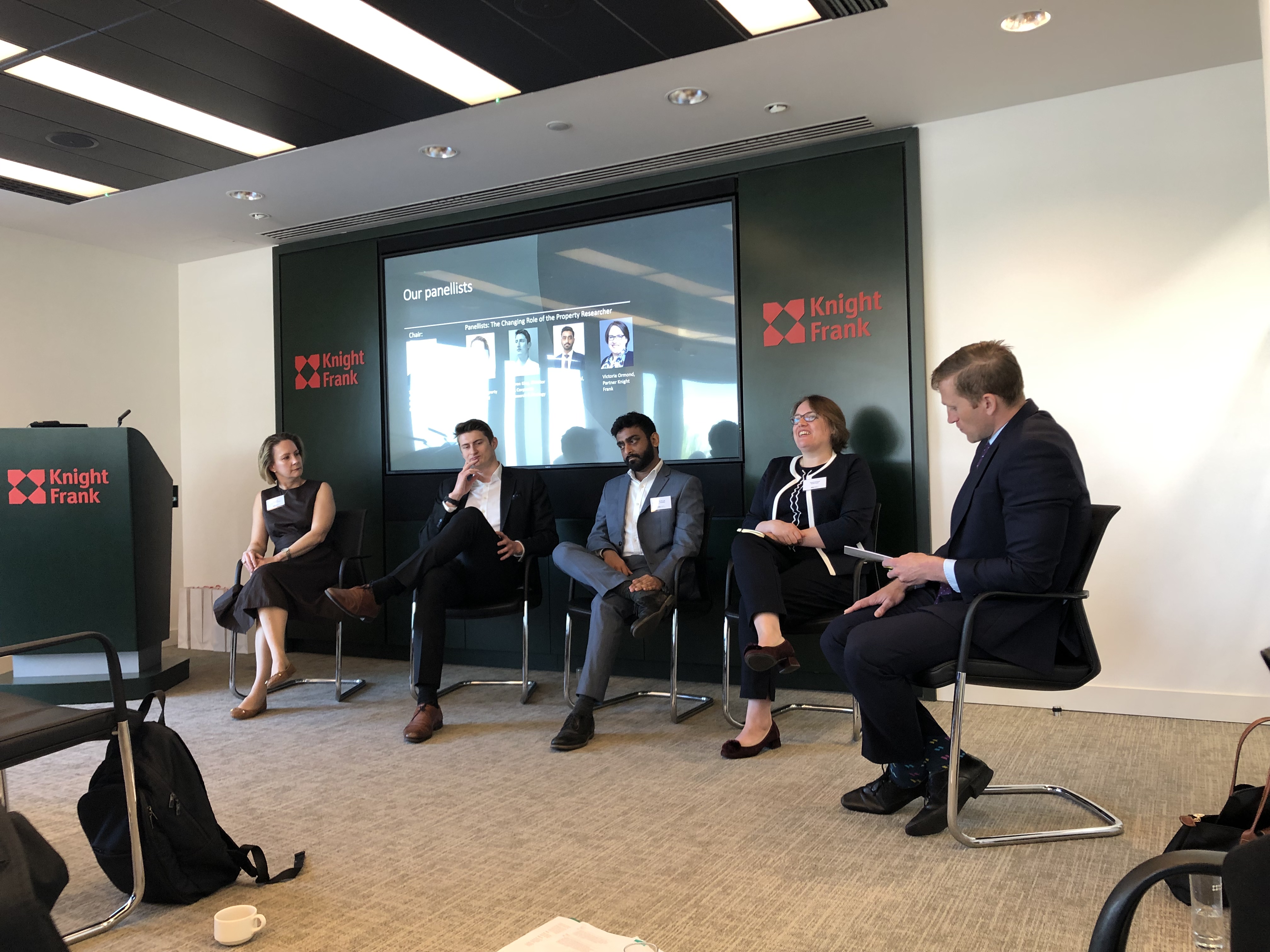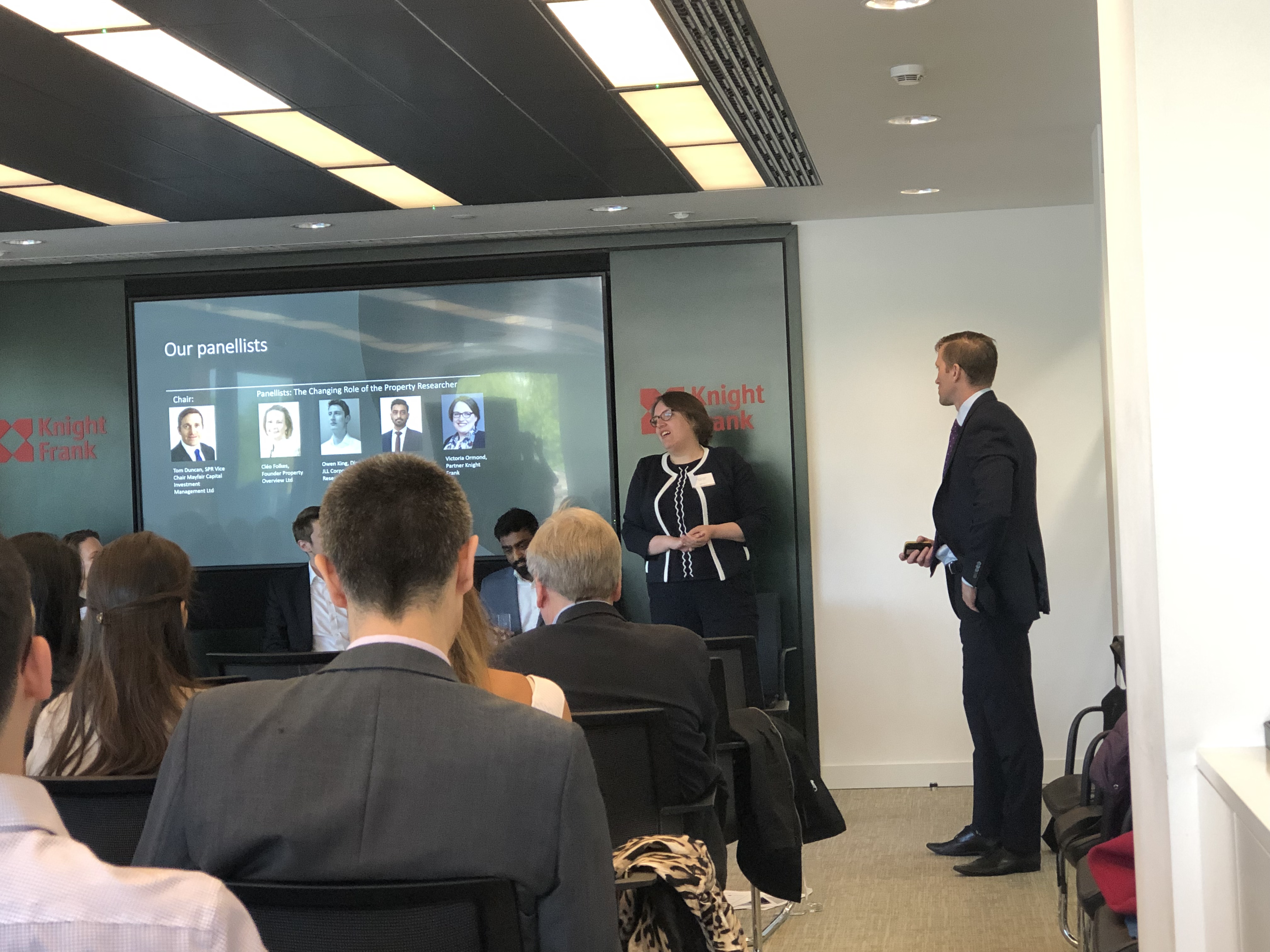Prize-winning research and the changing role of the property researcher
Knight Frank, 55 Baker Street, London, W1U 8AN, 15 May 2019
The Sky’s the Limit for Property Research
To judge by this seminar, these are exciting times for UK property research.
The SPR Research Prizes' were awarded for the first time at the end of 2018, and the seminar showcased the two winning papers and then discussed the changing role of the property researcher.
Given the ongoing national debate about how to boost the UK housing stock, it was fitting that both winning papers featured research on the residential sector.
The winners of the Open Prize were Ian McGuinness and Robert Holden, Knight Frank, with a piece entitled Skyward. This looked at the potential for building upward above existing residential property in London, using ground-breaking 3D geospatial analysis, based on digitised data from the Ordnance Survey, Land Registry and Historic England.
Looking at gaps in the existing rooflines, the research discovered it would be possible to add the equivalent of eight skyscrapers’ worth of additional residential space in the central London area. The authors evoked the power of this kind of 3D mapping-based analysis for decision making, particularly given its entirely objective and data-driven approach.


The supply of residential space was also the focus of the Under 30s Prize-winning research, entitled Spotlight: Planning and housing delivery. The winners, Emily Williams and Hamish Simmie of Savills, explained that this looked at how far UK local authorities had adopted new National Planning Policy Framework plans post-2012 and the likely implications for housing delivery. Although land supply has been improving across the country, the position is clearly very patchy, and many of those local authorities with lower levels of affordability have weak supply.
The authors emphasised that being able to measure ‘planning performance’ at the local level is valuable for developers and investors in deciding which areas to target, as well as at the broader policy level.
The panel discussion on the changing role of the property researcher was chaired by Tom Duncan, Mayfair Capital, the SPR Vice Chair. Victoria Ormond, Knight Frank, stressed that in light of computing advances, property research is becoming more and more quants-based, and researchers need to be able to ask the right questions and interpret the results. Owen King, JLL echoed this, suggesting that there are not enough people with the right competences, particularly in interpreting statistics. There is a lot of talk about machine learning, but linear regressions are an early step along this road, and much of the wider industry has not yet grasped these ideas.


Sandip Bhalsod, Aviva Investors, the newest of the panellists to property research, highlighted the importance of making the best use of the imperfect data that exists in the real world – this is very different from the academic environment many young researchers come from. Cleo Folkes, Property Overview, emphasised the importance of researchers being able to see the big picture in a time of rapid market change and to pick out new trends that could lead to different strategies. Property researchers must keep on learning.
Tim Horsey